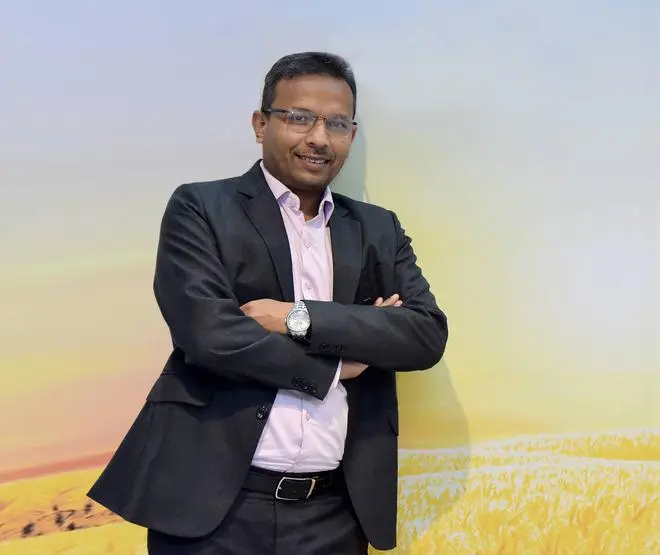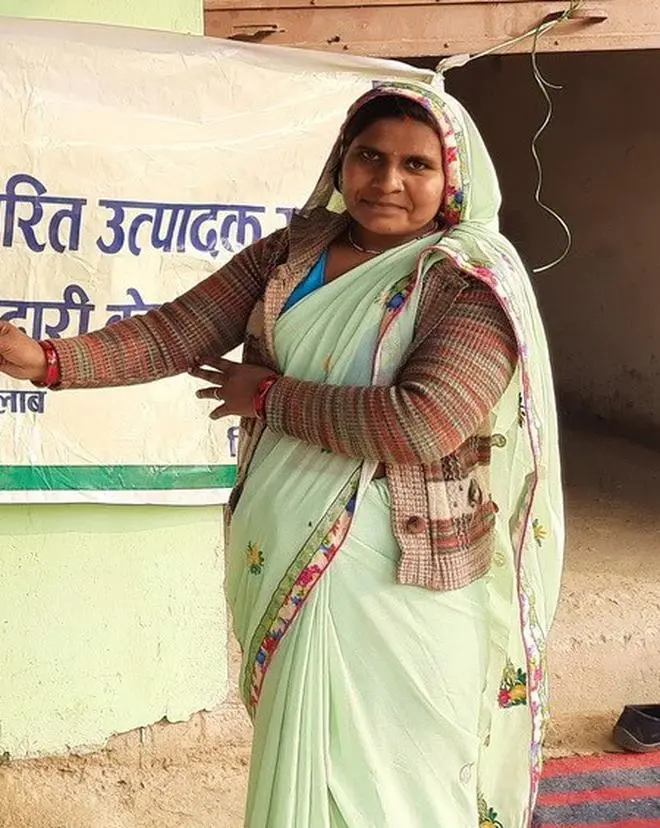From a simple housewife spending her day doing household chores to a board of directors in a UNDP-backed farmer producer organisation (FPO), Sindhu Devi of Deepapur village in Uttar Pradesh’s Varanasi district has come a long way.
One of her key contributions to her village is to organise women in forming the FPO, which now procures paddy grown there. This, in turn, has helped farmers get more income.
“Earlier, middlemen used to give us not more than ₹12-13 for a kg of paddy. But since we offered ₹14.50/kg to farmers, they also started offering ₹14-15/kg. We have already sent 1 truck of 25 tonnes and are now in the process of sending the next one, while much more quantities are in pipeline,” says Sindhu Devi, brimming with confidence. She is now among the board of directors of the FPO.
Transforming lives
Similarly, Sudha Singh of Krishnadattpur village, Rani Devi from Budhapur village, Poonam Yadav from Mungwar village — all from Varanasi district —, Manju Devi of Raipur village, Kanti Devi from Bhabhiniao village — both from Uttar Pradesh’s Chandauli district — and Reena Singh from Chariyao Khas village of Uttar Pradesh’s Deoria district have helped transform the lives of farmers in their respective regions forming or being actively involved in FPOs.
According to Shenoy Mathew, Head, Knowledge and Community Solutions, Arya.ag, his firm has links with 6.5 lakh farmers through 500-odd FPOs.
“We are witnessing a trend of agriculture being feminised and most of the fields today have more women. Around 20 per cent of FPOs linked with Arya is run by women,” he says.
Incomparable efficiencies
Argya.ag’s experience with women-led FPOs has been phenomenal.
“In our experience, especially with our work with self-help groups, the efficiencies of women-led FPOs has been incomparable to the rest,” says Mathew.
It is not just the case with women in Uttar Pradesh. In Maharashtra, women have gone further ahead. For example, Archana Boyer of Pardi village in Yavatmal district has not only become the president of a farmer producer company (FPC) in her region but is guiding women in about 15 villages to improve their livelihood.

Shenoy mathew
The FPC headed by her procures and sells soyabean, pigeon pea (tur), chickpea (gram/chana), and cotton. It also works with corporates such as Suguna Foods, which is based in Coimbatore, Tamil Nadu.
Similarly, Sunita Waghmare from Wardha and Leena Natak from Ralegaon from the same district are involved in a similar role to improve the economic status of the women in their regions.
Mobilising communities
Arya.ag’s Mathew says women who have benefitted from the firm’s programme have tended to play a fundamentally strong role in mobilising other women in their communities.
“They in turn become valuable resources for educating their village members and are more open to bringing changes for their benefit. All are examples of resilience and change makers for us. From stepping out of their homes to becoming a voice for their communities, these women have stood in places where traditionally men would and built better processes and incomes for their families,” he says.

Sindhu devi
A surprising aspect about these women is that the moment they got to learn something new and engage with new ideas.
“They have become more vocal about their needs and how helps us provide better, more intuitive programmes”, the Arya.ag official says, adding that they have even stood up against middlemen.
“It is encouraging to watch their transformation and with them that of communities,” he says.
Covid experience
Also going by the firm’s experience with women farmers in Gujarat, the Covid pandemic has resulted in women taking interest in marketing their agricultural produce, usually seen as a man’s domain.
“Women who lost their husbands during the Covid pandemic found that they were left at the mercy of relatives and well-wishers to sell their produce. This brought a change in the paradigm of roles in the agri value chain activity gender mix. Now women realise it is important for them to know about marketing as well,” says Mathew.




Comments
Comments have to be in English, and in full sentences. They cannot be abusive or personal. Please abide by our community guidelines for posting your comments.
We have migrated to a new commenting platform. If you are already a registered user of TheHindu Businessline and logged in, you may continue to engage with our articles. If you do not have an account please register and login to post comments. Users can access their older comments by logging into their accounts on Vuukle.